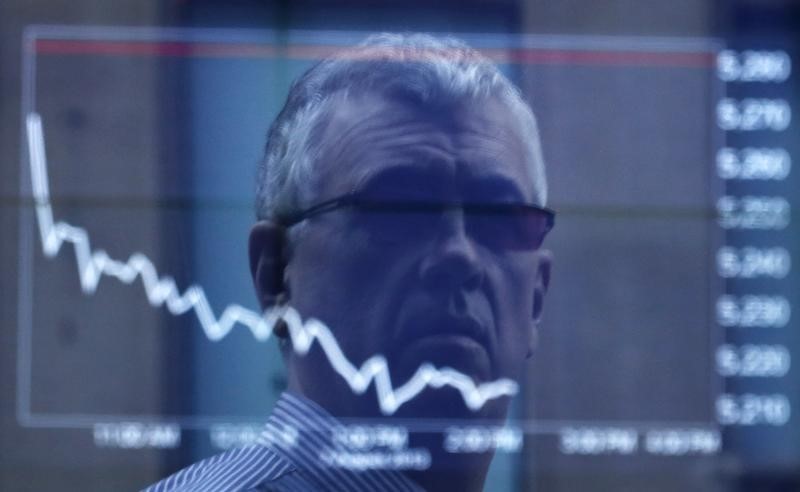Street Calls of the Week
It is expected to be a flat start to the week, with ASX 200 futures trading 2 points lower, down 0.02%, as of 8:30 am AEDT.
The ASX200 dropped 71 points (-0.87%) last week to close at 8,211, as higher yields and profit-taking on Wall Street weighed on the local market.
At a sector level, Information Technology (-3.98%), Industrials (-2.15%), Consumer Discretionary (-2.13%) and Real Estate (-2.02%) were the hardest hit, while Consumer Staples (+0.02%), Telecommunications (-0.11%), Financials (-0.13%) and Materials (-0.44%) showed relative resilience.
Among individual stocks, Mineral Resources Ltd (ASX:MIN) (-25.60%), Lake Resources Ltd (-15.38%), Cettire Ltd (-14.23%) and Humm Group Ltd (-14.11%) led the declines.
On the upside, Adairs Ltd (+13.14%), EML Payments (ASX:EML) Ltd (+11.48%), Betmakers Ltd (+10.00%) and Qantas Airways (ASX:ASX:QAN) Ltd (+8.96%) posted the strongest gains.
“This week the main highlight on the economic calendar will be Q3 inflation data released on Wednesday. The expectation is for headline inflation to rise by 0.4% QoQ for an annual rate of 2.8%," IG Markets analyst Tony Sycamore noted.
"The Trimmed Mean is expected to rise by 0.7% QoQ, which would see the annual rate of Trimmed Mean inflation ease to 3.4% YoY from 3.9% in the prior quarter.
“The Australian interest rate market is pricing in 8bp of a 25bp RBA rate cut for December after pricing in as much as 21bp last month. If the Trimmed Mean prints at 3.4% or lower, it will significantly increase the chances of an RBA rate cut before year-end.”
Mixed results in the US
A weak start in Australia follows the S&P 500 snapping a six-week streak of gains.
The US equity market ended Friday in mixed territory with gains in technology stocks balancing out declines in the banking sector. Over the week, the S&P 500 slipped 0.96%, the Dow Jones fell 2.6% while the Nasdaq posted a slight gain of 0.14%.
Friday’s economic data revealed a -0.8% decline in headline durable goods for September but durable goods excluding transportation rose 0.4% month-on-month, surpassing expectations of a -0.2% drop.
The University of Michigan’s final Consumer Sentiment index for October was revised up to 70.5 from 68.9, marking a slight dip from August’s 71.0.
In corporate news, New York Community Bancorp (NYSE:NYCB) fell 8.2% to US$10.55 on weak earnings guidance, while Morgan Stanley (NYSE:NYSE:MS) and Goldman Sachs (NYSE:GS) each declined by around 2%. On the upside, tech heavyweights Microsoft (NASDAQ:MSFT), Alphabet (NASDAQ:GOOGL), Meta and Amazon (NASDAQ:AMZN) rose between 0.8% and 1.5% ahead of anticipated earnings reports this week.
“This week's economic calendar is laden with event risk, including the advance estimate of Q3 GDP growth, non-farm payrolls, the unemployment rate and JOLTS job openings,” Sycamore noted. “Other important data releases will include the ISM Manufacturing PMI, CB consumer confidence, the PCE inflation report and personal spending and income figures.
“Turning to next week’s US election, Donald Trump remains ahead in all the key Battleground states, which suggests he is set to regain the White House.
"The rates market starts the week pricing in a 95% chance of a 25bp Fed rate cut in November, with a cumulative 44bp of Fed rate cuts priced in by year-end.”
In Europe
Continental European sharemarkets closed largely unchanged on Friday. Travel stocks led declines, falling 1.5%, while basic resources stocks gained 1.8% as industrial metal prices strengthened.
Electrolux dropped 14.6% after missing third-quarter earnings expectations due to ongoing losses in the US and increased competition from Chinese manufacturers.
- The pan-European FTSEurofirst 300 index ended flat but recorded a 1.1% loss over the week.
- In London, the FTSE 100 index fell 0.3% on Friday, finishing the week down 1.3% as investors digested a mixed array of earnings results.
Currencies and commodities
Currencies
Weakened against the US dollar during European and US trading. The Euro declined from US$1.0838 to a session low of US$1.0793 by the close in the US.
- The Australian dollar slipped from 66.46 US cents to 66.00 US cents, stabilising near 66.05 US cents at the close.
- The Japanese yen eased from 151.49 per US dollar to 152.37 yen, ending near 152.30.
Commodities
Global oil prices rose 2% on Friday, marking a 4% weekly gain, as investors assessed the ongoing Middle Eastern conflict and the upcoming US election.
- Brent crude climbed US$1.67, or 2.2%, to US$76.05 per barrel.
- The US Nymex crude added US$1.59, or 2.3%, to US$71.78.
- Brent finished the week up 4.1%, with Nymex up 3.7%.
Commodities
Base metal prices also advanced on Friday.
- Copper futures rose 0.5%.
- Aluminium futures increased 1.2%.
- Over the week, copper saw a slight decline of 0.1%, while aluminium gained 2.4%.
- Gold futures rose by US$5.70, or 0.2%, to US$2,754.60 per ounce on Friday, as tensions in the Middle East and uncertainty surrounding the upcoming US election bolstered demand.
- Spot gold was trading near US$2,747 per ounce at the US close, marking a 0.9% gain over the week and the third consecutive weekly increase as capital inflows into gold strengthened.
- Iron ore futures dipped by US17 cents, or 0.2%, to US$104.23 per ton on Friday, with investors awaiting potential fiscal stimulus measures from China, the world's largest consumer. The steel-making commodity fell 1.1% over the week.
What about small caps?
The S&P/ASX Small Ordinaries gained 0.21% on Friday to 3,172.00 but fell 0.54% for the week.
It has been a steady start to the week for small cap news and you can read about the following and more throughout the day.
